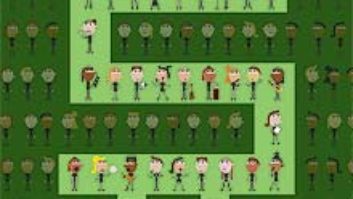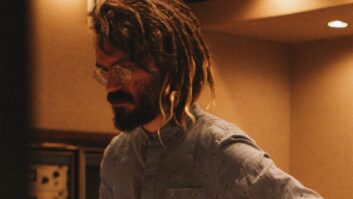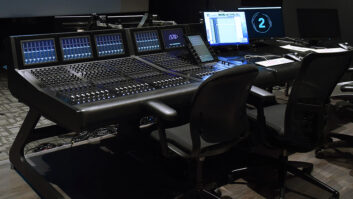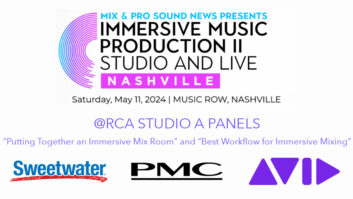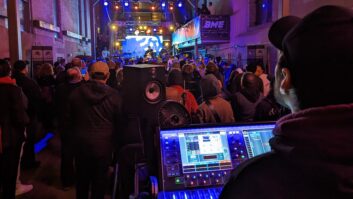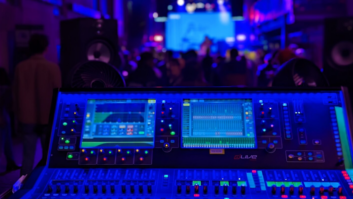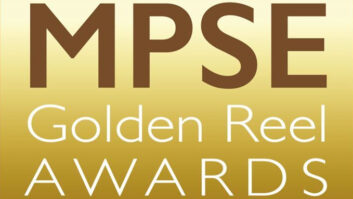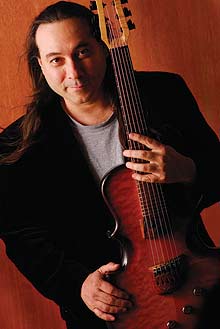
You compose for TV, videogames and now a major feature film. How did you get your first big break?
I’ll make the long story short. I came to Los Angeles and did a series of crazy odd jobs. My last civilian job was in the mailroom at Sony Pictures. I picked up some odd scoring jobs for TV, some stuff for Showtime, writing at night and using any money I made to buy gear. I was working on an animated series in the mid-’90s, The Savage Dragon, when an actor friend stopped by my house on the way to an audition for Buffy the Vampire Slayer. He took a copy of something I was working on and brought it to the audition. A year later, I’m back in Boston and got a call from one of the producers. That cassette tape got me the meeting. And then I got the show.
That’s a nice break. How about videogames?
Well, that was an area I never even thought of. In the late ’90s, The Hollywood Reporter put together an online composers’ registry, and I turned out to be a guinea pig for the site. A bit after the site launched, I got a call from Ubisoft in Montreal. I knew nothing about videogames and was busy at the time, so I turned it down. They knew Buffy and now wanted Donald Duck? How do you put those two together? But they flew in, we had a meeting and I found myself working on Donald Duck: Goin’ Quackers, one of the early PlayStation 2 games.
Television and videogames? Do you get yourself into a different headspace to write?
I still score to picture, so my process is really no different. But I did find that music plays a much different role in games. In film and TV, you are there to support a story, no question. In games, you are a driver, both emotionally and in game play, and you get chances to be more creative. Scoring the cinematics is really not much different, but the in-game cues have enormous technical issues, with loops and cues and characters that change depending on game play. It’s tough, more analytical, but I like figuring those moments out.
You’re a guitarist first. How do you write?
I trained myself on keyboard and mostly write that way. If you write on guitar or an instrument that you are comfortable with, you tend to write for that instrument. But what you want is to write in your head. So in the beginning, I did the MIDI mockups, with keyboard synths, recorded and delivered on DA-88. At the time I had a [Kurzweil] K2500, a [Roland] JV-1080, an [E-mu] E-IV with a Mackie 1604 console, and my guitar rig.
And your workstation?
Ha! My first one was an Atari that I pulled out of a friend’s closet. I used SynthiTrack then. And I’m a PC guy, always have been, so I use Cakewalk and have for years. I like things that work, that are solid and have just a few knobs. Now the new version has a few more knobs, but I love its intuitiveness and power.
Okay, let’s jump to today. You have a major Hollywood release coming up in the fall with Quantum Quest. How’s it going?
[Laughs] Well, I just started writing, and we’re recording in April! I’m juggling three reality shows right now, but I do well under pressure. Quantum Quest is a project that’s been circulating for years, and I’ve known the screenwriter/producer for years, so I’ve kept abreast of it. We’ll have an 82-piece orchestra up at the Skywalker Scoring Stage, recording and mixing with Leslie Ann Jones. So I’m excited! Even though it’s sci-fi and live action/animation, I’m keeping it pretty traditional. I’m not writing space music. It’s a drama with action as far as my writing goes.
You’ve assembled quite a varied career. Any advice for the up-and-comers?
I’m a big fan of getting yourself out there, whether Facebook or Twitter or directories. There is film, TV, videogames, Webisodes, cell phone content — endless opportunities for the working musician who is open to a lot of new things. Now there may not be a lot of money at first, but there wasn’t money at the start of music videos or videogames. You have to have an ear out for the next big thing and the money will come.
